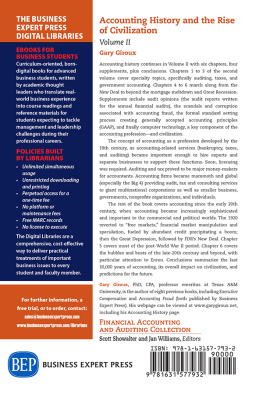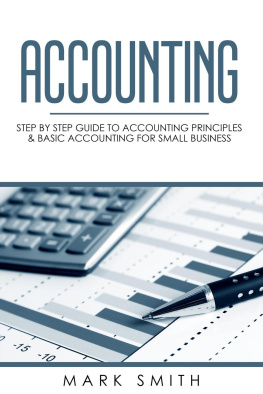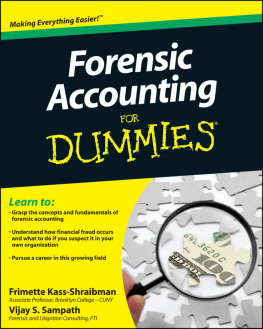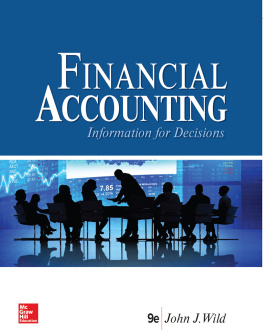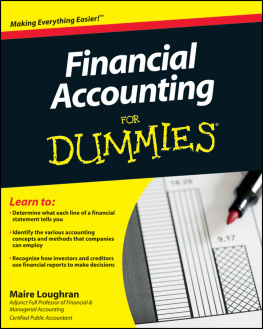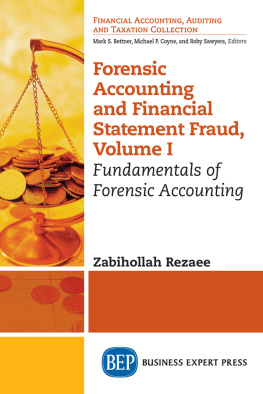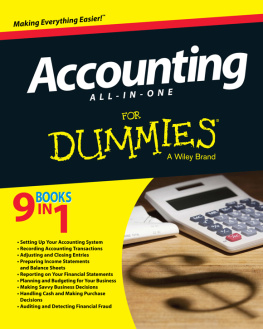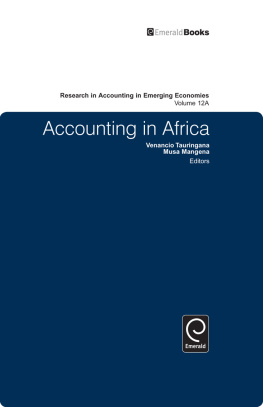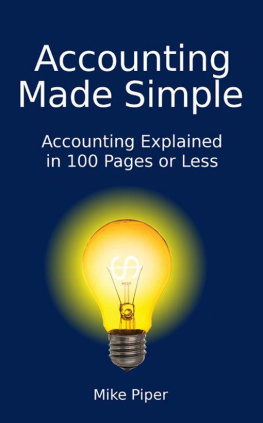
Accounting History and the Rise of Civilization
Accounting History and the Rise of Civilization
Volume II
Gary Giroux

Accounting History and the Rise of Civilization, Volume II
Copyright Business Expert Press, LLC, 2017.
All rights reserved. No part of this publication may be reproduced, stored in a retrieval system, or transmitted in any form or by any meanselectronic, mechanical, photocopy, recording, or any other except for brief quotations, not to exceed 400 words, without the prior permission of the publisher.
First published in 2017 by
Business Expert Press, LLC
222 East 46th Street, New York, NY 10017
www.businessexpertpress.com
ISBN-13: 978-1-63157-793-2 (paperback)
ISBN-13: 978-1-63157-794-9 (e-book)
Business Expert Press Financial Accounting and Auditing Collection
Collection ISSN: 2151-2795 (print)
Collection ISSN: 2151-2817 (electronic)
Cover and interior design by Exeter Premedia Services Private Ltd.,
Chennai, India
First edition: 2017
10 9 8 7 6 5 4 3 2 1
Printed in the United States of America.
Abstract
Accounting history continues in Volume II with six chapters, four supplements, plus conclusions. Chapters 1 to 3 of the second volume cover specialty topics, specifically auditing, taxes, and government accounting. Chapters 4 to 6 march along from the New Deal to beyond the mortgage meltdown and Great Recession. Supplements include audit opinions (the audit reports written for the annual financial audits), the scandals and corruption associated with accounting fraud, the formal standard setting process creating generally accepted accounting principles (GAAP), and finally computer technology, a key component of the accounting profession.
The concept of accounting as a profession developed by the 19th century, as accounting-related services (bankruptcy, taxes, and auditing) became important enough to hire experts and separate businesses to support these functions. Soon, licensing was required, creating organizations often acting something like Medieval guilds. Auditing and tax proved to be major money-makers for accountants. Accounting firms became mammoth and global (especially the Big 4) providing audit, tax, and consulting services to giant multinational corporations as well as smaller business, governments, nonprofits organizations, and individuals.
Keywords
accounting, auditing, capitalism, civilization, cost accounting, doubleentry book keeping, financial accounting, industrial revolution, information technology, public policy, taxes
Nobody planned the global capitalist system, nobody runs it, and nobody really understands it.
Matt Ridley
Auditors evaluate the financial statements and records of organizations to determine the degree users can rely on the information presented. The U.S. Securities Acts of the 1930s required all publicly traded corporations to submit audited financial reports conducted by certified public accountants (CPAs) to the Securities and Exchange Commission (SEC) as 10-ks. Audit procedures improved over the years as auditors had to deal with increased organization complexity, especially with the growing use of computers and advanced information technologies (plus the fallout from undetected fraud cases such as McKesson & Robbins).
Income taxes started when war finances demanded itthe Napoleonic Wars for Great Britain and the Civil War for the United States. The current American tax system started with the 16th Amendment. Relatively high income tax rates have been around since World War I. Accountants and attorneys vied for dominance and both groups became tax professionals. Much of the accountants role (and lawyers too) has been tax avoidanceminimizing tax payments short of breaking the law.
The roles of governments have changed over thousands of years, with periods and places of kings, others with near-absolute power, with occasional republics and democracies. America started as a republic with democratic perceptions, built around a Constitution of checks and balances between federal, state, and individual rights. Federal tensions grew across the executive, legislative, and judicial branches for dominance. Accounting evolved separately between federal versus state and local governments, resulting in very different GAAP models. Governments provide unique forms of financial reporting and transparency, with all but the smallest subject to some form of financial audit. Unlike commercial firms, governments provide both annual budgets and financial reports, in part because budgets are subject to some public oversight.
The rest of the book covers accounting since the start of the 20th century, when accounting became increasingly sophisticated and important to the commercial and political worlds. The buildup to the 1920s included a progressive era with increased legislation to regulate business, provide protections for employees and consumers, and encourage greater financial transparency. The 1920 reverted to free markets, financial market manipulation, and abundant credit precipitating a boom based on economic euphoria. The result was the bust of the Great Depression, followed by the New Deal of President Franklin Roosevelt.
focuses on the combined innovations and dark side of business, finance, and accounting involved in the continued modernization and manipulation through the 1920s. The big event was the market crash of 1929, followed by the Great Depression and the regulatory fixes of the New Deal. By most measures the creation of the Securities and Exchange Commission and other New Deal regulation proved effective for decades, including the roles of financial disclosure and financial auditing.
covers most of the post-World War II period, before the tech bubble and crash of the 1990s. The chapter focuses on corporate and financial issues of the period, including the business innovations important for both economic success and growth, such as the computerization started in the 1950s, the implementation of pensions, executive compensation issues such as stock options, and refinements in finance and accounting systems.
covers the bubbles and busts of the late-20th century and beyond, with particular attention to Enron. The amazing Enron story was the most significant accounting and business scandal in U.S. history, involving many complex issues that refused to go away: derivatives, special purpose entities, mark-to-market, executive compensation, corporate governance, meet-or-beat earnings announcements, and financial reporting opacity. The chapter reviews the other major boom-bust debaclethe subprime meltdown, a massive financial manipulation scheme that fooled almost everyone (even most of the perpetrators). Out of the catastrophes came the reform bills, especially Sarbanes-Oxley in 2002 and Dodd-Frank in 2010. Conclusions summarize the last 10,000 years of accounting, its overall impact on civilization, and predictions for the future.
Volume II has four supplements. Financial audits require an auditors opinion: Do the financial statements meet the test of GAAP. Scandals and corruption (supplement B) focus on specific business scandals and underlying corruption in a capitalist system. Accounting was central to some (Enron comes to mind) and played at least a supporting role in almost all of them. Next, accounting standards in supplement C. The book has only limited coverage of specific financial accounting such as pensions, stock options, and other derivatives, or fair value of accounting; this is my take on why these are important, hard to get right, and part of the overall limitations of financial statements. Finally, information technology, part of which is the domain of accounting, usually accountants and auditors racing to deal with the latest innovations and problems. Technology promises a bright future, but with the continuing threats of instant calamity. For instance, high-frequency traders are capable of disrupting (possibly shutting down) markets, with the flash crash a preview; hostile governments, organizations, and individuals can attack through cyberspace; and any number of unknown future events are possible. Whatever happens, this is the present and future of accounting and the rest of civilization.
Next page
